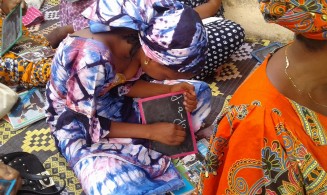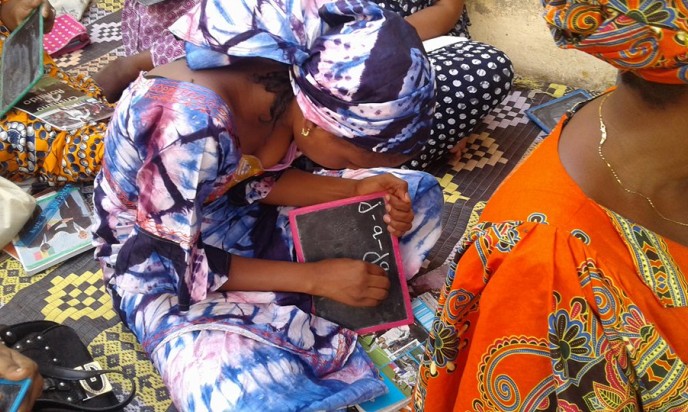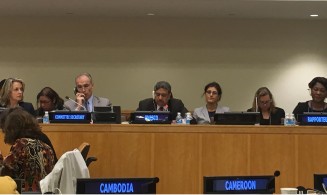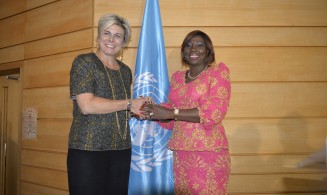

The Global Alliance for Literacy
Literacy as a foundation of lifelong learning, literacy contributes to the safeguarding not only of education as a human right, but also enables us to exercise fundamental freedoms that make our societies more equal and just.
The United Nations General Assembly resolution Literacy for life: Shaping future agendas reaffirms the above principles and continues to underline the importance of strengthening joint efforts among all stakeholders in the international community to advance the global literacy agenda.
Globally, 750 million adults – two-thirds of whom are women – still lack basic reading and writing skills.
When looking at literacy across regions, we know that southern Asia is home to almost one-half of the global illiterate population. In addition, 27 per cent of all illiterate adults live in sub-Saharan Africa, 10 per cent in eastern and southeastern Asia, 9 per cent in northern Africa and western Asia, and about 4 per cent in Latin America and the Caribbean. Significant gender gaps in adult literacy rates to the detriment of women are still found in northern Africa and western Asia, southern Asia, and sub-Saharan Africa.
What is GAL?
The Global Alliance for Literacy within the Framework of Lifelong Learning (GAL) engages a multiplicity of stakeholders to advocate for the importance of youth and adult literacy and to catalyse in an effective and coordinated manner efforts to improve it in the countries that need it the most.
GAL’s objectives
- Improve stakeholders’ collaboration for literacy development at global, regional and national levels.
- Strengthen political will, commitments and policy awareness.
- Promote policy learning and sharing.
- Promote knowledge creation and sharing for Member States’ evidence-based policy design and implementation.
- Encourage South-South cooperation.
How does GAL work?
GAL’s advocacy and knowledge-sharing efforts are guided by a targeted approach focused on 20 countries with an adult literacy rate below 50 per cent and the E9 countries, where the largest number of illiterate adults live.
Learn more about the GAL strategy 2020-2025
GAL Countries
| Adult literacy rate below 50% | ||||
Afghanistan Benin Burkina Faso Comoros | Côte d'Ivoire Central African Republic Chad Ethiopia | The Gambia Guinea Guinea-Bissau Haiti | Iraq Liberia Mali Mauritania | Niger Senegal Sierra Leone South Sudan |
| E9 countries[1] | ||||
| Africa | Arab States | Asia and the Pacific | Latin America and the Caribbean | |
Nigeria | Egypt | Bangladesh China India Indonesia Pakistan | Brazil Mexico | |
[1] UNESCO Institute of Statistics. 2017. E-9 forum meeting. [online] Available at: http://uis.unesco.org/en/news/e-9-forum-meeting [Accessed 6 December 2018].
GAL Associate Members
- African Union (AU)
- Asia South Pacific Association for Basic and Adult Education (ASPBAE)
- Commonwealth of Learning (CoL)
- Conference of the Ministers of Education of French speaking countries (CONFEMEN)
- European Basic Skills Network (EBSN)
- International Council for Adult Education (ICAE)
- Institut de la Francophonie pour l'éducation et la formation (IFEF/OIF)
- International Federation of Library Associations (IFLA)
- International Labour Organization (ILO)
- Pamoja West Africa
- Southeast Asian Ministers of Education Organization (SEAMEO)
- SIL International
- UNESCO Chair for Adult Literacy and Social Transformation
- United Nations High Commissioner for Refugees (UNHCR)







